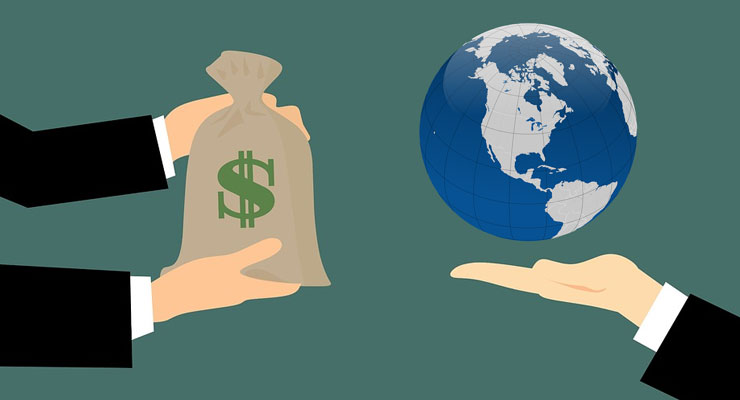
Don’t bank on California, especially when banks are involved.
Silicon Valley Bank’s collapse is widely discussed as a harbinger of the future, a sign of problems and disruptions in the technology businesses that were its best customers. But this bank failure, the second largest in U.S. history, actually fits a very old pattern—of California and its industries putting the economies of the nation and the world at risk.
Our state’s history of precipitating economic crisis is singular, and rooted in the same California characteristic that so often makes us successful. We aren’t content to make slow, patient investments. We want to get rich as fast as possible.
Our need for speed originates in the Gold Rush that made us a state and occasioned the rapid development of banks—and often, their even faster failures.
Banks were formed in defiance of the 1849 state constitution, which barred banking. Banks also ignored the first state legislature which—in a preview of the legislative incoherence that prevails to this day—prohibited debt while also setting interest rates
The banks proliferated—and failed in damaging ways. The history of San Francisco of the 1850s is one of financial panics and depressions, followed by attempts to climb out of them. (One San Francisco banker, the future Civil War general William Tecumseh Sherman, helped end an 1855 panic by keeping his institution open during a bank run.) Giant banks sprung from nowhere, and disappeared quickly. The Bank of California, the first commercial bank in the West, was founded in 1864 and soon became the second-richest bank in the country. It failed in 1875, contributing to a panic and the death of its founder. (It later reopened.)
Catastrophe only spawned new banks. After San Francisco’s 1906 earthquake, banker A.P. Giannini set up a makeshift outpost in North Beach with gold and silver rescued from the ruins of an earlier venture. Eventually, he would establish Bank of America, which pioneered branch banking and, in the 1980s, was briefly the world’s largest. (After a 1998 merger with NationsBank, Bank of America moved its headquarters to North Carolina.)
Bank of America endured, but spectacular failures mark the recent story of California banking. Over the past two generations, California has regularly authored crisis and global recession.
The savings and loan crisis of the late 1980s and early 1990s was in part the product of bank deregulation pushed by a California president, Ronald Reagan, and furthered by California lawmakers. In the late 1970s, as inflation rose, the federal government raised interest rates, and many savings and loan associations (also known as thrifts) struggled to remain solvent. California’s lax regulatory response allowed the state’s thrifts to try to escape their woes by making speculative real estate investments, which only compounded their problems.
This deregulation was most shamelessly exploited by the Lincoln Savings and Loan Association, based in Irvine, and its head, Charles Keating, who used depositors’ money to make high-risk investments. More than 20,000 people lost their life savings. Keating, seeking to evade federal regulators and keep control of his thrift, compromised state banking regulators and five U.S. senators, the so-called Keating Five, including California’s own Alan Cranston. Keating was eventually convicted of fraud, but freed on appeal.
Hundreds of savings and loans closed for good. The federal government seized some thrifts and bailed out others, at an estimated cost to taxpayers of more than $100 billion.
The 21st century has seen two California-driven busts. The first came in 2000, when the dot-com bubble burst. Venture capitalists and investment banks had been funding tech start-ups, few of them profitable or with real business plans, in great numbers in the late 1990s. The collapse of many of those startups, and of tech stock prices, helped spark a national recession.
But that recession proved minor compared to the Great Recession that arrived in 2008. That global economic meltdown is often blamed on Wall Street banks. But it, too, was invented in California.
Then, as now, the Golden State had the biggest and most expensive housing market in the country. Our middle class, in its aspirational desperation to buy houses and keep up an unaffordable standard of living, led the way to ever-growing consumer and mortgage debt. Our banks and mortgage companies—including Calabasas-based Countrywide Financial, once the nation’s largest mortgage lender—led the way in making bad subprime loans that left borrowers owing more than their homes were worth. Countrywide and its friends on Wall Street also recklessly securitized those loans; they were then traded on markets, with many investors not understanding the risks.
When the housing market crashed and foreclosures proliferated, the carnage included stock market collapse, double-digit unemployment, record bankruptcies for people and local governments, giant state budget deficits, and mass layoffs among public workers and in many industries. In California, family income declined, the middle class shrunk, and income inequality surged to the highest level in at least 30 years, according to the Public Policy Institute of California.
Californians are proud of the size of their state’s economy, the world’s fifth largest. But when an economy of that scale crashes, it extends beyond borders, contributing to economic malaise from Madrid to Manila.
That’s why world markets declined sharply when news broke of depositors fleeing Silicon Valley Bank. California’s leading tech companies and their workers did their banking at these institutions, so many have assumed the contagion will spread, as it did before. It remains to be seen whether aggressive action by the U.S. government to seize Silicon Valley Bank, and guarantee even uninsured funds, will contain the damage.
These days, major global institutions track and offer reports on “systemic risks” or “mega-risks” to the future of the world and its economies. The World Economic Forum has a report on risks that covers natural disasters, inequality and its impacts, climate change, democratic decline, aging infrastructure, technological disruption, war, terrorism, and infectious diseases.
Maybe they should add California, with its talent for spectacular financial failure, to the list.
Adrian Tawfik says
Great article. California is a monster!